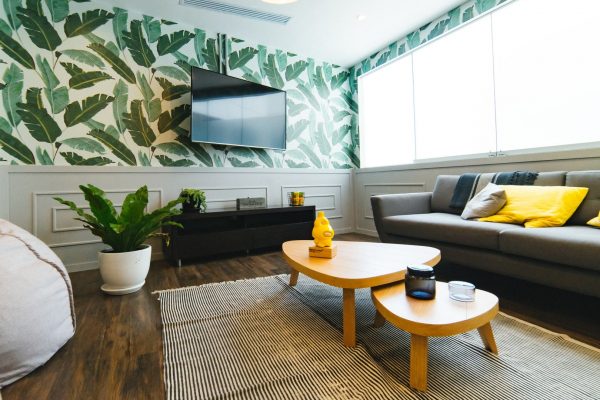Depression Rehab: What to Expect and How It Helps You Heal
Questions Answered in This Article:
- What Is Depression Rehab?
- Who Should Consider Depression Rehab?
- What Happens Inside a Depression Rehab Program?
- How to Choose the Right Depression Rehab Center
When depression becomes more than just a rough patch, finding the right level of care can be life-changing. Depression rehab offers structured support for those struggling with depression, especially when symptoms are severe or treatment-resistant. These programs provide a safe environment to heal emotionally, mentally, and physically.
Unlike traditional therapy alone, these depression treatment programs address the root causes of depression and equip clients with coping strategies for the long term. If you’ve been searching for depression rehab centers near me, you’ve already taken a critical step toward recovery. Centers like Rock View Recovery provide compassionate, evidence-based care to help clients find hope and healing.
What Is Depression Rehab?
Depression rehab inpatient programs are more than a few therapy sessions—they are structured, intensive options that help individuals regain stability when outpatient treatment isn’t enough. These programs provide a safe, supportive space where you can focus on healing without distractions.
A typical depression treatment center combines medical evaluations, medication management, psychotherapy, and holistic interventions under one roof. This approach ensures that mental health treatment addresses both emotional and physical well-being. The goal is not just short-term relief—it’s building the resilience and skills needed to treat depression effectively for life.
Who Should Consider Depression Rehab?
Not everyone needs inpatient depression treatment, but for those with severe symptoms, persistent episodes, or co-occurring disorders, rehab facilities for depression can be life-saving. If you’ve tried standard therapy or medications without significant improvement, this higher level of care may be the next step.
According to the National Institute of Mental Health, 8.3% of U.S. adults experience a major depressive episode annually, and nearly 30% require more intensive support than traditional therapy offers. Common warning signs include loss of interest in daily activities, hopelessness, and functional decline, especially when coupled with substance abuse or trauma-related conditions.
Types of Programs in Depression Rehab
There is no one-size-fits-all solution for depression, which is why most rehab clinics for depression offer multiple options within their treatment programs.
Inpatient Depression Treatment
For those in severe distress or at risk of self-harm, depression rehab inpatient care provides 24-hour supervision, intensive therapy, and medical support in a structured setting.
Outpatient Treatment
For individuals who can maintain some independence, outpatient treatment options like IOPs and PHPs offer structured therapy without overnight stays.
Both levels of care integrate behavioral therapy, medication management, and wellness services to support lasting recovery.
Specialized Tracks for Complex Needs
Some individuals experience depression alongside conditions like PTSD, anxiety, or substance abuse. For these cases, specialized treatment centers offer dual-diagnosis programs and trauma-informed tracks. These programs ensure that depression and any co-occurring issues are treated simultaneously, reducing relapse risks.
By involving psychiatrists, therapists, and holistic practitioners, these programs create personalized treatment plans that support the whole person, not just the diagnosis.
What Happens Inside a Depression Rehab Program?
Knowing what to expect in depression rehab can ease anxiety about the process. These programs create structure, consistency, and a sense of safety—all vital for recovery.
A typical day may start with mindfulness, followed by individual therapy in the morning. Afternoons feature group therapy, skill-building workshops, and education on coping techniques. Evenings often include holistic practices like yoga or art therapy to calm the mind before rest.
Core Components of Care
Every depression rehab inpatient program includes core elements to promote healing:
- Comprehensive Assessments to develop individualized treatment plans.
- Evidence-based therapies like CBT and DBT for emotional regulation.
- Medication management to optimize mental and physical stability.
Research shows that structured depression treatment programs improve outcomes by up to 60% compared to outpatient care alone (Journal of Clinical Psychiatry). This holistic approach lays the foundation for long-term success.
How to Choose the Right Depression Rehab Center
Not all treatment centers offer the same quality. Here’s what to look for:
- Accreditation & Licensing: JCAHO or CARF certification.
- Experienced Staff: Specialists in mood disorders and trauma.
- Holistic Services: Yoga, mindfulness, nutrition counseling.
- Aftercare Planning: Ongoing support after discharge.
Some modern rehab clinics for depression also use digital aftercare tools for virtual therapy and progress tracking.
The Importance of Aftercare
Recovery continues well beyond the walls of a depression treatment center. Effective aftercare includes therapy, medication management, and peer support. Lifestyle changes like healthy eating and regular exercise also strengthen progress.
According to the Journal of Affective Disorders, clients who engage in structured aftercare are 50% less likely to relapse within the first year. Long-term success depends on maintaining these habits and connections.
Start Your Personalized Depression Treatment Now
Seeking treatment for depression is an act of courage and the first step toward reclaiming your life. Whether you need inpatient depression treatment or intensive outpatient treatment, help is within reach.
At Rock View Recovery, we provide evidence-based depression treatment programs in a compassionate setting—available 24 hours a day, 7 days a week. You don’t have to do this alone. Call us today at (602) 962-1795 or email [email protected] to speak with an admissions specialist and start your journey toward lasting recovery.















